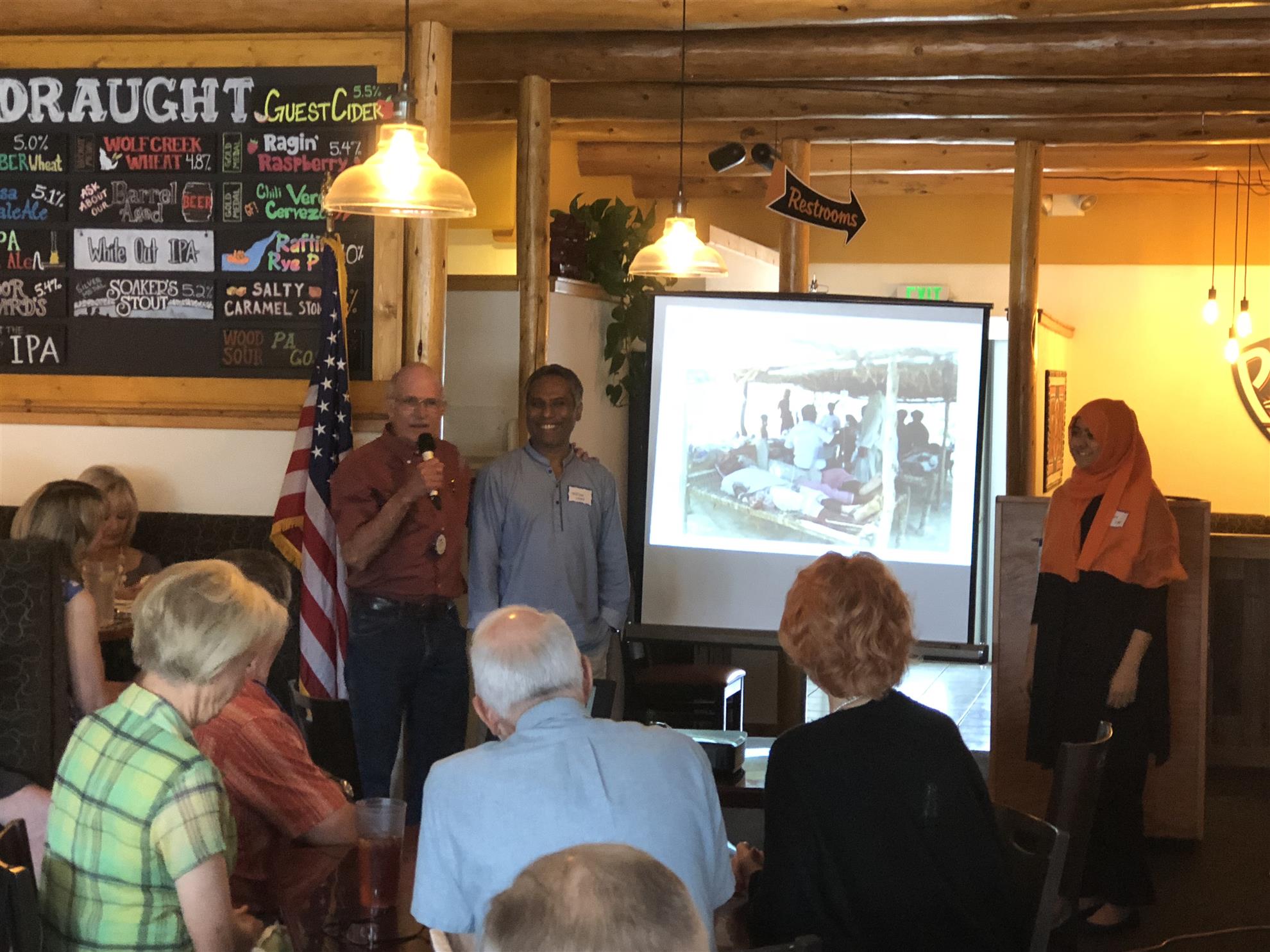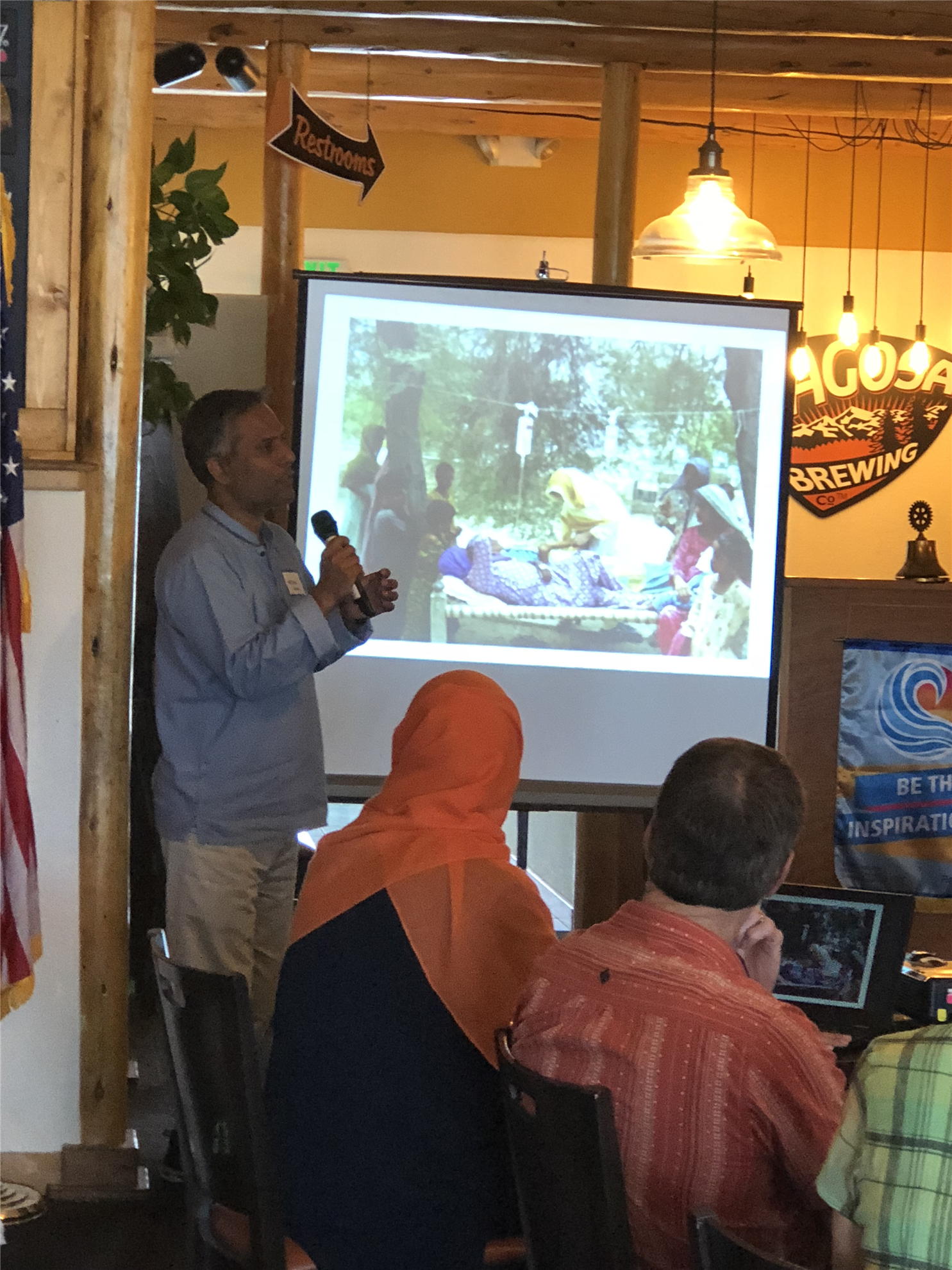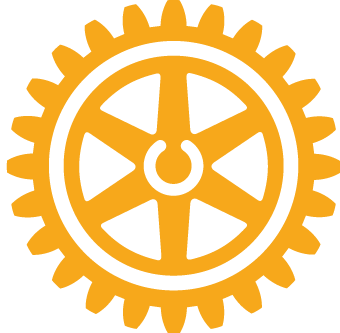August 9, 2018

Speaker: Rotary Pakistan Project Beneficiary Mujtaba Haider
Internationalist extraordinaire and Rotary Foundation advocate Dave Smith introduced our speaker, Mujtaba Haider, and a guest, Anum Saba.
Dave explained he first met Mujtaba, who was then a member of a group called Pakistan Wilderness, in 2004 in connection with a program then ongoing in a remote area of Pakistan. At the time, Dave added subsequently, Pagosa Rotary wasn’t well versed on interactions with the Rotary Foundation, and he credits Dick Bond with conceiving the plan to gain the Foundation’s support for Pakistani relief projects, and leading the initial effort to raise matching funds.
Dave said that Mujtaba has been active at least since they first met in efforts to bring the benefits of modernization to rural, mountainous Pakistan. This summer, Dave reported, Mujtaba and Anum had come to the United States to attend a course at Harvard University, and had then come to Pagosa for a visit before returning.
Taking the microphone, Mujtaba told us the area of Pakistan where he works is not only remote, mountainous and poor, it is nearly inaccessible with no modern transportation (imagine the days a century and more ago of ox carts and Ellwood pass), no electricity, and no high schools. The population is widely malnourished, without an adequate food supply, and has no access to health care.
But he told us his credo is “always dream for the best.” And so, Mujtaba recalled, in response to a request to Rotary, finally a happy day came when a four-wheel drive truck was delivered to provide the infrastructure of what had til then been only a dream, a mobile medical clinic to carry health care to the area’s population.

Doctors from better-off Pakistani communities in the region donate their time, the truck is packed high with supplies (awesomely documented in photographs displayed by Mujtaba), and health care is delivered after an arduous journey to Pakistan’s higher altitude version of Pagosa Springs from a more primitive era. With the success of the mobile clinic “driven” by the truck, Mujtaba proclaimed, health care has now been provided to 1000’s in an area where before there was none.
Other projects undertaken in the area, he added, include community centers and educational opportunities for women, and computer centers for youth.
While he and his colleagues work to help others less privileged, Mujtaba said, “God didn’t forget us. We also benefited. . . The biggest achievement for yourself is when you do something for others.” And a big reward, he added, is the smiles of those helped.
 Pagosa Springs Rotary Club
Pagosa Springs Rotary Club